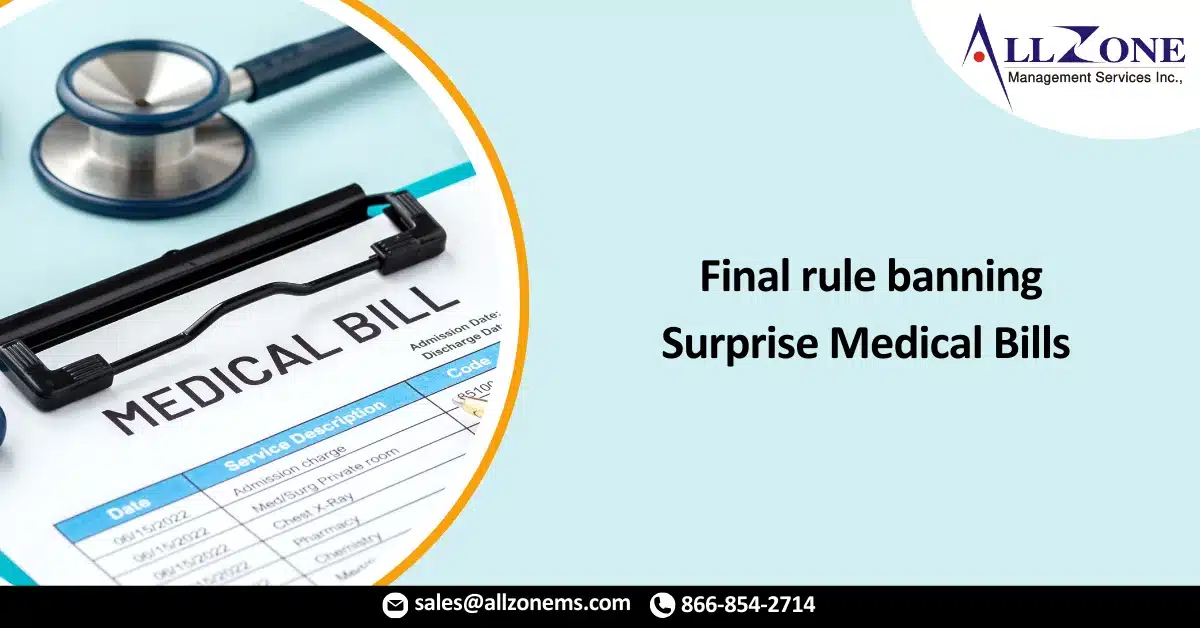The final rule is an implementation of the No Surprises Act, which was passed by Congress last year.
The U.S. Department of Health and Human Services issued an interim final rule this week banning surprise medical bills and some out-of-network charges, which will go into effect on January 1, 2022 for providers and insurance plans that begin on or after that date.
The final rule is an implementation of the No Surprises Act, which was passed by Congress last year and seeks to protect patients from unexpected and often burdensome out-of-network bills. The Department of Labor, the Treasury department and the Office of Personnel Management were all co-authors of the interim final rule.
WHAT’S THE IMPACT?
The rule contains several provisions, including a ban on surprise billing for emergency services, regardless of where they’re provided, with such services treated as in-network services. It also bans out-of-network cost-sharing higher than what a patient would pay in coinsurance and deductibles for in-network care.
The interim final rule goes further, banning out-of-network charges without advance notice and out-of-network charges for ancillary care at in-network facilities in all circumstances.
There are also repercussions for insurance plans that provide emergency services benefits. Any emergency service, according to the rule, should be covered without prior authorization, whether the provider is in-network or not.
In terms of cost sharing, consumer cost sharing for out-of-network emergency services are required to be less than the billed charge of the qualifying payment amount, while cost sharing for out-of-network air ambulance services will be calculated “using the lesser of the billed charge or the plan’s or issuer’s qualifying payment amount.”
Some providers will also be required to supply a one-page notice explaining the requirements and prohibitions on surprise billing.
Missing from the final rule, but present in the No Surprises Act, is an arbitration process, or independent dispute resolution process, that would allow providers and payers to resolve out-of-network charges that would otherwise be borne by the patient through balance billing – a process meant to determine the out-of-network rate for which payers will reimburse providers. HHS said future regulations will address the arbitration process.
The interim final rule will take effect 60 days after it’s published on the Federal Register, but won’t truly be applicable until January 1, 2022.
THE LARGER TREND
Surprise billing occurs when a patient sees an out-of-network provider during an emergency, or in a nonemergency case in which a patient sees an in-network provider but gets care from an out-of-network provider, such as an anesthesiologist.
When a patient receives out-of-network care, many times unknowingly, they may receive the balance of the bill, or the difference between full charges and what’s been paid.
What’s more, surprise billing may leave many patients vulnerable to the financial burdens presented by a nationwide pandemic. Research shows that 41% of insured adults nationwide were surprised by a medical bill in the past two years and that two thirds of adults worry about their ability to afford an unexpected medical bill.
Congress passed the No Surprises Act in December 2020, which prohibits most surprise out-of-network billing for plan years beginning in 2022. Specifically, it requires plans to apply in-network cost sharing and prohibits out-of-network providers from balance billing on surprise medical bills.
The act, however, does not apply to bills from ambulances – which is important, because as many as 1.5 million privately insured patients are brought to an emergency room by an ambulance and may be at risk of getting a surprise medical bill each year, according to Kaiser Family Foundation.
Although the No Surprises Act doesn’t address surprise ambulance bills, it does require that a federal advisory committee convene to review and recommend options to protect patients from them.
For more information: https://www.healthcarefinancenews.com/news/biden-administration-releases-interim-final-rule-banning-surprise-medical-bills

